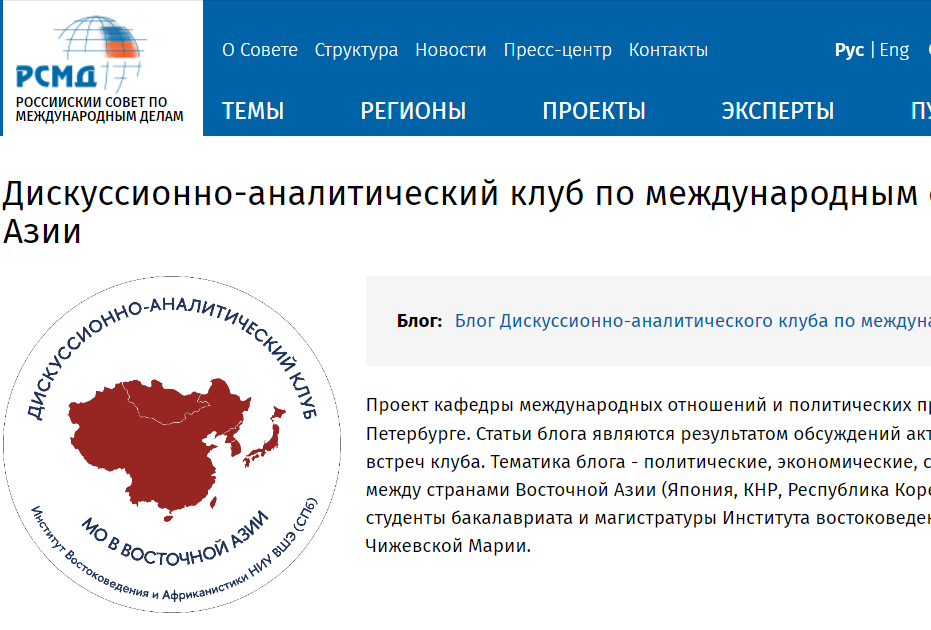- A
- A
- A
- ABC
- ABC
- ABC
- А
- А
- А
- А
- А
- HSE Campus in St. Petersburg
- Institute of Asian and African Studies
- Department of International Relations and Political Processes in Asia and Africa
- News
- Debate Club Participants Published the First Article on the Russian International Affairs Council Website
-
Department
Address: 123 Naberezhnaya Kanala Griboedova, room 322
190068 St Petersburg
8 (812) 644-59-11 *61289
 EU–Central Asian Interactions: Perceptions, Interests and Practices
EU–Central Asian Interactions: Perceptions, Interests and Practices
Arynov Z., Bossuyt F., Davletova N. et al.
Abingdon: Routledge, 2024.
Askerov M. A., Issaev L., Korotayev A.
Social Evolution & History. 2025. Vol. 25. No. 2. P. 78-102.
In bk.: Handbook on Migration to China. Edward Elgar Publishing, 2025. P. 294-308.

Debate Club Participants Published the First Article on the Russian International Affairs Council Website

This project aims to engage participants not only in discussions about pressing regional issues but also in producing analytical writings. The first meeting focused on the peace ceremony held in Nagasaki on August 9, 2024, which resulted in publishing an analytical summary of the discussion.
'In June 2024, Nagasaki's mayor, Suzuki Shiro, decided to exclude the Israeli ambassador from the ceremony while inviting the Palestinian ambassador. This decision drew sharp criticism from Israel and several Western nations; notably, U.S. Ambassador to Tokyo Rahm Emanuel declined to attend, labeling the move as "political," a sentiment echoed by ambassadors from other G7 countries.
In this context, it is crucial to explore the underlying reasons for Japan's decision. Understanding why the Japanese government did not intervene to mitigate the diplomatic fallout with its G7 partners is essential. Additionally, this situation offers valuable insights into the evolving dynamics of Japan's relations with its Western allies'.
The full article can be found here.
